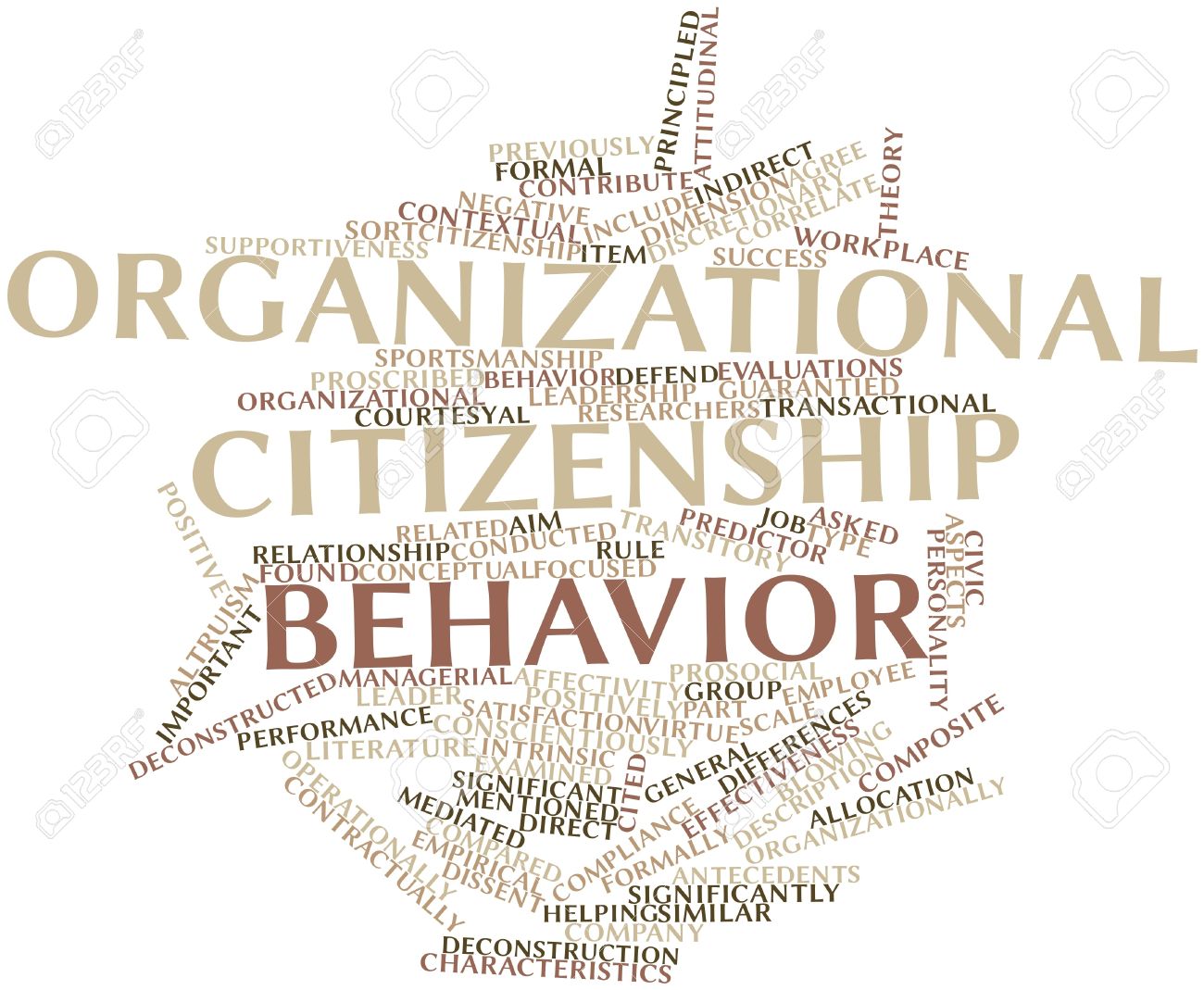by Dr Deirdre O’Donovan, Lecturer in HRM and MA HRM Course Coordinator, Cork Institute of Technology.
Previous posts in this series have explained the concept of Organizational Citizenship Behaviour (OCB), given an insight into what form different types of OCBs might take, and explained what factors may influence their undertaking. This post relates to the potential advantages that employees undertaking OCBs might provide the organisation i.e. answers the question “Why should we care?”.
In short, OCBs are behaviours that, while possibly quite small when considered individually, combine to positively impact the organisation. An example that I often use to explain the potential benefits of OCBs to students concerns telephones. Consider, for example, one employee answering a phone in an office, even though it’s not in their job description to do so, rather they believe they should, “just in case”. Now, consider 50 employees answering calls into and across the organisation, again, even though it’s not in their job description. The result for the organisation is a lack of a need to hire people, as was done before, to just answer phones. Although a simple example, it illustrates the essence of the potential OCBs present the organisation; potentially small, supra-role activities that combine to benefit and enhance the organisation.
Before considering the potential advantages associated with OCBs for organisations, a reminder of the dimensions of OCBs being used in this series (as outlined in Post 3) might be helpful. As outlined in Post 3 of this series, based on the work of Podsakoff and colleagues (2000), seven common dimensions of OCBs are:
1. Helping Behaviour
2. Sportsmanship
3. Organizational Loyalty
4. Organizational Compliance
5. Individual Initiative
6. Civic Virtue
7. Self-Development
Helping behaviour relates to helping others in the organisation with work related problems, or helping them to avoid them. For the organisation, an advantage stemming from this could be seen in ad hoc mentoring, coaching and training of employees by other employees, potentially reducing T&D costs, and creating a culture of collaboration and problem-solving. Of course it does not automatically follow that employees helping other employees will do so in the right way, and so there should be HR and managerial involvement in this open culture to ensure that employees can also go to those “in the know” for assistance. Indeed, the assistance of HR and superiors should serve to reinforce the value of such OCBs.
OCBs in the form of sportsmanship behaviours also present potential advantages for the organisation. In particular, given that one element of sportsmanship involves accepting work-related inconveniences without complaint, organisations may find that some employees will be willing to work late to meet deadlines and complete projects, negating the need to hire extra staff. Another related advantage under this category may come in the form of individuals taking on extra work to cover a missing colleague’s workload, again potentially reducing costs by negating the need to hire temporary cover. Sportsmanship also involves the maintenance of a positive attitude by employees, even when things are not going their way. For the organisation, this can see another advantage in the form of employees making suggestions with regard to how to solve problems or capitalise on opportunities, and not ceasing to do so when their suggestions are not acted upon. In order to attempt to ensure that this later behaviour and associated advantage is likely to continue, however, it is important that when employee suggestions are not taken on board that, when appropriate, reasoning is explained, or at least the suggestion is not dealt with in a dismissive manner, as such actions may prevent employees from making suggestions going forward.
Advantages also stem from the OCB dimension of organisational loyalty. First, organisational loyalty could see a reduction in recruitment costs. One element of organisational loyalty concerns promoting the organisation to outsiders, which may see employees talking positively about employment in the organisation, and promoting job opportunities currently available. This word of mouth job advertising may allow organisations a reduction in traditional advertising costs. Another aspect of organisational loyalty concerns remaining loyal to the organisation during difficult periods, such as during an economic recession. For organisations, this means that employees who display loyalty OCBs are more likely to stay with the organisation until operations improve, potentially decreasing future R&S and T&D costs.
As discussed in Post 3, the organisational compliance OCB dimension covers behaviours such as accepting rules, regulations and procedures, and adhering to them, even when adherence is not monitored or observed. The presence of employees who are found to adhere to rules and regulations when not monitored may afford organisations the opportunity to increase managements span of control (i.e. increase the number of their direct reports), as less monitoring is needed of employees who will adhere to procedure regardless of monitoring.
Individual initiative OCBs essentially relates to “going beyond the call of duty”, that is, undertaking tasks that are job-related, but doing so at a level that is so far beyond requirements that it begins to take on a voluntary flavour. This possibly carries more obvious advantages when considered in light of customer service roles. In service provision, employees are the face of the organisation. Consequently, when employees are seen to go beyond requirements by customers, the organisation is viewed is a positive light, and repeat custom is more likely. Behaviours in this context may include, for example, wait staff remembering that a particular customer always orders coffee with breakfast, and so automatically bringing a cup over when that customer comes over, making the customer feel valued, rather than just a face. Another example might be a nurse or healthcare assistant going out of their way to source food that a patient enjoys. These and similar behaviours ultimately present a positive image of the company.
More advantages lie in employees engaged in civic virtue behaviours. Employees doing so may monitor the organizations environment for both threats and opportunities, and look out for the organizations best interests. This can assist managers in environmental scanning, threat and opportunity identification, and offer different perspectives on the organisation’s direction. Employees who display civic virtue behaviours also tend to be more of a “team player”, which can help organisations to establish, maintain and reinforce a collaborative and participative organisational culture.
A final set of advantages concerns the potential reduction of T&D costs and improvement of the organisational skill set. When employees engage in self-development OCBs, they are improving their skills, knowledge and abilities. While employees may do so by seeking training in an area relevant to their job, they may also seek to simply improve their overall skillset. This can reduce future training costs to the organisation, but also can bring extra skills into the organisational skills pool, which can be called upon if and when needed in the future. Additionally, some employees engaged in self-development may have an interest in training others, and so, if sent on a Train-the-Trainer course, could reduce the need for external training in the future.
The advantages associated with OCBs vary across organisations, and are dependent on both the types of OCBs being engaged in and the number of OCBs being undertaken, in addition to organisational support of employees who engage in OCBs (think of the influencers discussed in Post 4). Regardless, OCBs, when combined, serve to enhance organisational functioning in many possible ways, as discussed throughout this post. There is, however, a dark side to OCBs, which will be discussed in a later post.
About the author
Dr Deirdre O’Donovan is currently a lecturer in Human Resource Management in Cork Institute of Technology, Cork, Ireland, and the course coordinator for the MA in HRM. Previous research focussed on National Culture and Performance Management, while her current research interests are primarily rooted in Industrial/Organisational Psychology, Inclusion and HRM.
LinkedIn: Deirdre-O-Donovan-phd
Email: deirdre.odonovan@cit.ie









